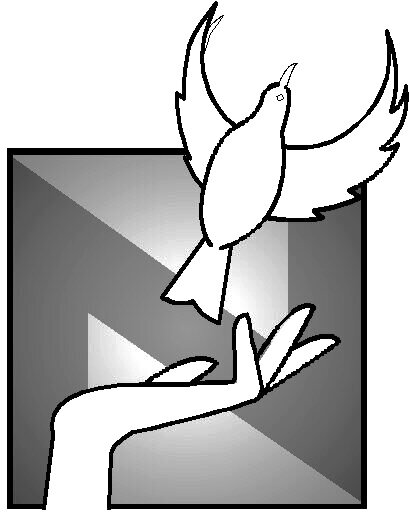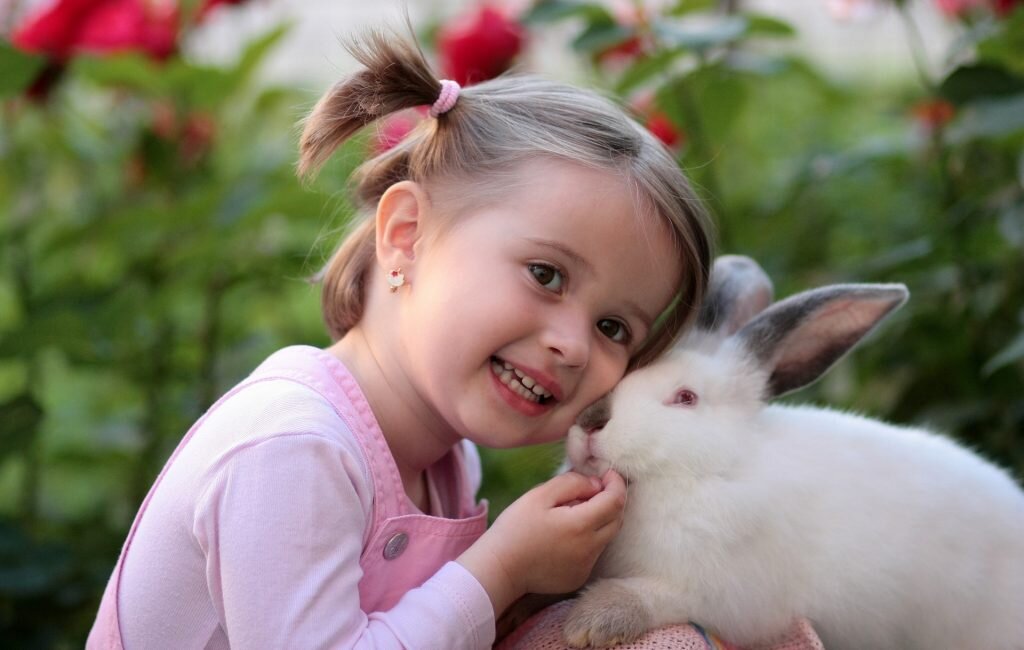The Selfish Act of Forgiveness
Often when we think of forgiveness we think of letting someone, “getting away” with something or, “getting off Scott-free”. Forgiveness is not about ignoring the fact we were hurt. It is not about setting yourself up to get hurt again. Forgiveness is not reconciliation or changing your mind about what is best for you. Forgiveness is not even something we do to enhance the life of another. It is, in one sense, a very selfish act.
A wise man once said, “Resentment is a poison one takes hoping to harm another.”
If we really look at what the lack of forgiveness does to us, we notice the emotional internal pain we inflict on ourselves. Long-held resentment can lead to physical symptoms as well; muscle tension, migraines, high blood pressure, poor concentration, sleep and appetite disturbances, and a suppressed immune system, to name a few.
Another important reason to learn to forgive, is as a model for children. Children do as we do, not as we say. If you can’t forgive for yourself and your own serenity, then forgiving as a life-lesson for your children may be the reason you need. When children see us do things that are extremely difficult, it makes an impression. Children then believe that they also are able to overcome difficult emotional situations and find the best possible solution for their own peace of mind. Most of the movies and games children are exposed to glorify retaliation and holding grudges. Your real-life modeling can have a great impact on their own ability to forgive and not carry insults and betrayals throughout life.
Forgiving is not endorsing what the offender did, or pretending that consequences aren’t deserved. But in forgiving we place the quality and serenity of our own life above what may be warranted for another. It is difficult to put down resentment. It is not in our nature to accept when things are not “fair”. Sometimes we fear we will be placing ourselves in vulnerability again if we forgive and try to forget.
Empowering questions we need to ask ourselves are; “Am I willing to give away more of my life to the person who offended me? Do they really deserve all this energy and attention? Do I choose to give them more of my thoughts, energy, passion and focus? What am I taking away from those I love by holding on to this grudge? Who am I really ‘making pay’ for my anger?”
Hate attaches us to the object of our focus. In one way, resentment is as bonding of an emotion as love. We become emotionally connected to the despised object when we dwell on rage and thoughts of retaliation. The intensity of focus and connection is similar to when we dwell on all the adorable qualities of someone we love. Resentment may be an uncomfortable feeling but it is impossible to completely disconnect emotionally from some one whom you hate and despise. Forgiveness is the knife that can sever that attachment and free up passionate energy to go into your dreams, goals, children, new relationship, new career, etc.
We choose to forgive. No one earns forgiveness. No one “deserves” forgiveness, because we can’t turn back time and have the offense (or offenses) not take place. Forgiveness is a decision we make to enhance the quality of our own life.
Forgiveness is not moving our boundaries and allowing the offender to continue to hurt us. We are still responsible to respectfully, assertively and with dignity set our boundaries and care for our emotional and physical safety.
For instance, if you have been in a physically abusive relationship and your partner refuses to get treatment or work on anger management skills, forgiveness means “releasing from debt,” not moving back in or taking the restraining order off. It does mean not dwelling on what you are “owed”, or bringing up how horribly you were treated every opportunity that arises. It means standing outside a victim perspective and asking yourself what things you admire in yourself that kept you alive (caring for children, maintaining the house or a job, establishing friendships, etc). It means giving yourself credit for who you have become for having gone through this experience. It means first forgiving yourself for being in the situation. Then, after you have been kind to yourself for awhile, you will then have the compassion to begin forgiving others.
Forgiveness is a process, is it not an event. In Clarissa Estes’ book, “Women Who Run With the Wolves”, she describes four phases of forgiving.
The first is “to forgo—to leave it alone”; this is to take a break from thinking about the other person for awhile. This allows us to gather strength in other areas of life and keeps us from becoming exhausted and immobilized.
A good way to do this is when thoughts of resentment come to mind say, “next”, and refuse to dwell on the anger and bitterness. Acknowledge the thought and let it pass on through your mind without “feeding” it.
The second is “to forbear—to abstain from punishing”. This is to restrain ourselves from punitive mutterings, gossip or acting in hostile ways. It is to practice the generosity of refraining from retaliation.
When we begin this phase we may need to stop ourselves in mid-sentence, or retract an absolute “no” that we just gave in retaliation for our emotional pain. It is not easy to stop gossiping, whining and “making them pay”. Give yourself credit when you notice yourself holding back from participating in these behaviors.
The third is “ to forget—to avert from memory, to refuse to dwell”. This is not to have a blank memory, but it is to have the person and events move to the background rather than stay in the foreground of your mind. It is to consciously distract yourself when you start ruminating about the person.
And the fourth is “ to forgive—to abandon the debt.” Forgiveness is not surrender. It is a conscious decision to stop harboring resentment, and giving up your resolve to retaliate.
To write off the debt takes generosity of spirit. It takes a great deal of self-love and knowing that you are whole and complete without ever having things be “fair,” in regards to the one who offended you. To forgive the debt means you are not diminished by the actions of the other. You are powerful and lovable without the repayment of this debt.
A final stage is to give up the right to ever hold the betrayal over the other’s head. Giving up the right to ever bring up the subject again. It means you choose to never use it as a weapon again. This completely frees you from the hold of grudges and resentment.
The highest stage of forgiveness, and one that is not always available, is to give compassionate assistance to the person who betrayed you. This doesn’t mean placing yourself in physical or emotional danger. Nor does it mean to force yourself on another person, or to give past your point of resentment. What it does mean, is that given an opportunity to provide help, you do so without judgement and with mercy and kindness, remembering the strong centered person you have become.
Ways to start forgiving include, “putting the resentment down for a time”. This could be for an hour, a day or a week. But give your mind some time off so you have time to build another identity and have other memories to draw from. When we live in rage and resentment it is difficult to attract kind and loving people to us. Usually who will find us are other angry bitter people, “misery loves company.”
As you begin to forgive remember that on no day did you ever wake up and think, “How can I really mess up my life today?” When you understand this has always been true for you, you will then begin to realize it is also true for all those in your life. Each day we make the best choices we can with the options we see available to us. Sometimes fear, self-doubt, habits, addictions and ignorance narrow our view of what is available.
Forgiveness is an art. It is something we practice daily, from forgiving the driver that cut in front of us, to the injustices inflicted on us by well-meaning but uniformed parents. Making a commitment to ourselves to practice forgiveness, is one of the most powerful ways to bring peace and tranquility into our lives. You can begin sleeping better, having a normal appetite, laughing more, creating spontaneity, and attracting fun-loving people into your life today. All you need to do is take time daily to remind yourself of your commitment to forgiveness.
You can do this by journaling, writing letters you never send, meditating, praying, walking in nature, participating in group support, talking with a friend, reading books or listening to inspirational tapes. Finding ways to rejuvenate spiritually will also help remind you there is a bigger order to the world, you are not alone, and you are important, safe and protected. Even if you have never considered yourself a forgiving person you can begin changing your self-definition today.
Remember, the love and forgiveness you put out into the world will come back to you ten fold.
© 2005 Lois V. Nightingale, Ph.D. psychologist 9503. Dr. Nightingale is the director of the Nightingale Center in Yorba Linda, Calif. She is a Clinical Psychologist and Marriage, Family and Child Therapist. www.nightingalecenter.com (714) 993-5343
Exercise letter (not to send!)
Dear ____________________________,
If only:
__________________________________________________________________________
__________________________________________________________________________
__________________________________________________________________________
I wish you had:
__________________________________________________________________________
__________________________________________________________________________
__________________________________________________________________________
Things I wanted to tell you but didn’t:
1) __________________________________________________________________________
__________________________________________________________________________
__________________________________________________________________________
Ways you betrayed me include:
__________________________________________________________________________
__________________________________________________________________________
__________________________________________________________________________
I am angry at you because:
__________________________________________________________________________
__________________________________________________________________________
__________________________________________________________________________
I have sadness about:
__________________________________________________________________________
__________________________________________________________________________
__________________________________________________________________________
I am grateful to you for:
__________________________________________________________________________
__________________________________________________________________________
__________________________________________________________________________
Things my resentment has taken from me:
__________________________________________________________________________
__________________________________________________________________________
__________________________________________________________________________
Things I wish for you:
__________________________________________________________________________
__________________________________________________________________________
__________________________________________________________________________
Gifts I am incorporating into my life from my relationship with you:
__________________________________________________________________________
__________________________________________________________________________
__________________________________________________________________________
____________________________________,
___________________________________
© 2004 Lois V. Nightingale, Ph.D. Dr. Nightingale, psychologist psy9503, is the director of the Nightingale Center in Yorba Linda, Calif. (714) 993-5343, www.NightingaleCenter.com
How Do I Know My child Needs Therapy?
Many adults now acknowledge the benefit of a supportive professional as they face the challenges a divorce inevitably brings. But many parents are unsure at what point their child may be exhibiting signs that indicate a need for professional counseling.
Many of these signs are similar to the symptoms adults experience when undergoing severe stress.
Sleep disturbances
Some children wake with nightmares or have great difficulty going to sleep, saying they are afraid (of monsters, burglars, ghosts, etc.). Other children may regress to earlier sleeping patterns, such as sleeping with a favorite object, wetting the bed, or sleeping in a parent’s room. Children may also withdraw and hide in sleeping, which is more likely in teenagers and sleep longer hours than usual.
Eating changes
Some children under severe stress have difficulty with appetite. They may find their stomach hurts or feels upset and they may appear more picky than usual or refuse to eat at certain meals. Other children may find solace in food and try to nurture themselves by eating sweets and high fat foods. Both are signs that a child is not addressing directly their feelings of stress, anxiety or possible depression.
School problems
Teachers can often tell when there are problems at home just by observing a child’s behavior at school. A child who was once very social may isolate or even push peers away. Children can become aggressive, exhibiting the interaction styles they have witnessed between their parents.
Withdrawal
Some children withdraw and isolate when they are afraid or upset. When isolating children may be doing things that help them feel better, such as writing, drawing or listening to music. But a child may be feeling alone, left out, frightened and obsessing about how out of control their life feels.
Outbursts of anger or destructive behavior
Children who have been holding in how they feel will let it out at some point. If outbursts of anger (verbal or physical) are modeled by either of the parents, children are more likely to let this anger out in similar ways. Children’s anger and frustration need to be heard, not “fixed” or reasoned away.
Trying hard to get parents to reconcile
It is very normal for children to want their parents back together, but if a child becomes fixated on this activity it can be a sign of severe stress and fear. Some children try to get their parents back together by being exceptionally good so parents won’t fight about them, others will act out to try to get parents to focus on them rather than the separation.
Becoming the “perfect” child or confidant
Some children cope with the stress of a divorce by trying to take the place of the absent parent. They may try to make life easier for a parent, and in return deny their own natural needs as a child. This robs a child of having a healthy childhood and can cause serious problems later on in life.
Coping with a difficult custody battle.
Custody battles can take a grave toll on children. Often they are pulled this way and that and may even be asked by the court with which parent they wish to live. A child entangled in a complicated custody battle can almost always use some outside help and counseling.
While some of these signs may appear for a short period of time and in mild forms during any divorce, if they are present for a significant period of time (weeks or months) it is important for the child to be evaluated by a professional therapist. Children usually feel comfortable with a therapist who specializes in treating children or has children of their own. A therapist working with children should also have supplies on hand to help children feel comfortable sharing their feelings. Some common therapy tools are, drawing materials, such as crayons, markers, colored pencils, puppets, books, sand tray and toys.
Remember it is always appropriate to ask several therapists questions about how they conduct therapy before choosing one for your child. A therapist with experience in working with children should help your child feel comfortable in their office. Both parents and children need extra support when going through the challenges of divorce.
© 2004 Lois V. Nightingale, Ph.D. psychologist psy9503
Clinical Psychologist, 714-993-5343
Director of Nightingale Center in Yorba Linda, California.
Author of “My Parents Still Love Me Even Though They’re Getting Divorced”
Anxiety Can Get Better
40 million people suffer from some form of anxiety every year in the US. This includes Panic attacks, Obsessive Compulsive Disorder, Agoraphobia, Generalized Anxiety Disorder, Post-traumatic Stress Disorder and Phobias, including test-taking phobias, driving phobias and Separation Anxiety in children. In therapy, clients can learn relaxation skills to address the “fight or flight” reaction and coping strategies to overcoming anxiety.
Anxiety Books
The 10 Best-Ever Anxiety Management Techniques: Understanding How Your Brain Makes You Anxious and What You Can Do…by Wehrenberg
When Panic Attacks: The New, Drug-Free Anxiety Therapy That Can Change Your Life, by Burns
The Anxiety and Phobia Workbook, by Bourne
What to Do When You Worry Too Much: A Kid’s Guide to Overcoming Anxiety (What to Do Guides for Kids), by Huebner and Matthews
The Mindfulness and Acceptance Workbook for Anxiety: A Guide to Breaking Free from Anxiety, Phobias, and Worry… by. Forsythand, Eifert
The Anxiety Workbook for Teens: Activities to Help You Deal with Anxiety and Worry, by Schab
Freeing Your Child from Anxiety: Powerful, Practical Solutions to Overcome Your Child’s Fears, Worries, and Phobias… by Chansky
Feeling Good: The New Mood Therapy, by Burns
The 10 Best-Ever Anxiety Management Techniques: Understanding How Your Brain Makes You Anxious and What You Can Do..by Wehrenberg
When Panic Attacks: The New, Drug-Free Anxiety Therapy That Can Change Your Life, by Burns
The Anxiety and Phobia Workbook, by Bourne
What to Do When You Worry Too Much: A Kid’s Guide to Overcoming Anxiety (What to Do Guides for Kids), by Huebner and Matthews
The Mindfulness and Acceptance Workbook for Anxiety: A Guide to Breaking Free from Anxiety, Phobias, and Worry… by. Forsythand, Eifert
The Anxiety Workbook for Teens: Activities to Help You Deal with Anxiety and Worry, by Schab
Freeing Your Child from Anxiety: Powerful, Practical Solutions to Overcome Your Child’s Fears, Worries, and Phobias… by Chansky
Feeling Good: The New Mood Therapy, by Burns
Easy to use stress reduction strategies
Aps for your phone:
Meditation Timer & Tracker
Relax Melodies – Free
Anxiety Free – Free
Breathe2Relax – Free
Qi Gong Meditation Relaxation – Free
Nature Sounds Relanxiety3ax and Sleep-Free
Worry Box—Anxiety Self-Help-Free
Stop Panic & Anxiety Self-Help-Free
Relax & Rest Guided Meditations by Meditation Oasis
Universal Breathing by Saagara-Free
Easy Breathing Techniques:
1. Re-lax: Take 5-10 min. and breathe in slowly, saying silently to yourself “Re” and slowly exhale saying “Lax”.
2. Breathe in through your nose deeply (starting with your abdomen) to the count of 4. Hold your breath for 4 counts and then slowly exhale through your mouth for 4 counts. Repeat 10-20 times.
3. Place your tongue on the roof of your mouth (it stays there throughout this exercise). Breathe in through your nose for the count of 4. Hold for the count of 7. Exhale through your mouth around your tongue (it should make a noise) to the count of 8. Repeat 10 times.
Dr. Lois Nightingale, Psychologist, PSY9503 714-993-5343
Discipline vs. Punishment
Every year that I’m in practice I see more and more children with anxiety. Anxiety is the clinical word for fear. An anxiety disorder just means that fear is high enough to meet diagnostic criteria for a psychiatric diagnosis.
No loving parent wants to raise a fearful child. Discipline comes from the Latin word for pupil, discipulus, the same root word as disciple. Discipline has nothing to do with scaring a child into compliance. Unfortunately, only in recent human history has society seen children as fully human, and so have come to question reliance on physical punishment and threats as beneficial methods of child-rearing. So, what are parents left with?
The ways in which a child is socialized (taught to conform to social norms) affects important parts of their developing brain differently. The specific methods used to train your child matter, neurologically. Fear and shame-based techniques light up the amygdala, the fight or flight center of the brain that reacts to danger. As a child develops, less-used synaptic connections are pruned and more-used pathways grow. For instance, babies utter all the sounds of all human speech. As they mimic their parents and learn to speak the language they hear, other sounds are lost, and the parts of the brain needed for those unused activities are pruned to allow more connections in the areas with more use.
When fear is the primary mode of getting a child to obey, some neurons connected to self-confidence, higher reasoning, and problem-solving in the cortex, are pruned, while fear centers grow, gaining more neural connections. The more a child experiences fear, the more they are hard-wired to interpret life experiences as dangerous.
Healthy coping skills, pride in one’s own abilities, and courage to try new things, come from pruning fear centers and enhancing the competing neurological connections in the higher centers of the brain.
Your first impulse to scare your child into compliance, may not be the best use of a learning moment. Helping your child develop self-confidence and resiliency, rather than fear and anxiety, takes time, patience and thinking ahead of your child.
When my son was eleven, he complained that what his teachers were requiring of him was ridiculous and that he would never use that information in his life. I had him watch The Karate Kid and write a page essay on why he thought Mr. Miyagi had Daniel, “Wax on, wax off.” In his own words, he found the lesson I wanted him to learn by observing the storyline of the movie. Each week, my son had to earn his computer time. When issues arose, I used them to help him gain new useful information, not to scare him. He learned to love academics and analytical thinking and is now a successful trial attorney.
This isn’t always easy. Focusing on teaching new, self-awareness skills, vs. scaring, shamming or trying to make your child feel as upset as you feel when they misbehave, will help you generate many new ideas.
For instance, if your child did not comply with picking up their dishes or cleaning their room, helping them join a volunteer day of beach cleanup, can offer together time and a sense of how not cleaning up after one’s self can get out of hand and became a burden to others.
If your child is being inappropriate online, help them develop online skills that will assist them in life. Writing an essay (with citations—not from Wikipedia!) on how to determine if a news story is real, partially real, or completely false, can give them discernment and critical thinking skills.
Time together, can help develop tools towards self-confidence instead of fear-based parenting. Volunteer opportunities, emotionally-safe conversations, genuine curiosity, creative projects, travel, museums, art exhibits, or long nature walks, even well-chosen movies or live theater, can all provide opportunities to talk about painful emotions behind inappropriate behaviors and find healthy, socially appropriate ways to handle those feelings.
Most of all, model how you would like your child to behave and talk. “Do as I say, not as I do,” has never worked as a parenting tool. Your child is watching how you respond. Lead with compassion and teaching, not with your own anxiety and fear.
Model positive ways of learning new coping skills, and how to take responsibility for your own feelings. Don’t make others responsible for your uncomfortable emotions. Model curiosity over judgement, humor over criticism, patience over impulsivity, planning over a last-minute rush, and gratitude over complaining.
If changing old habits is difficult, working with a therapist to set up new systems in the family may be beneficial. A psychologist or other licensed therapist may have tools you haven’t thought of.
That look of fear and anger in your child’s eyes when they haven’t pleased you, can be replaced with curiosity, problem solving, closeness and pride in themselves for their newly learned skills. Create joy, a sense of competency and self-worth. Help discipline the higher neurological connections that give your child the best tools for living a great life.
Recommended books:
How to Talk So Kids Will Listen & Listen So Kids Will Talk
Compassionate Child-Rearing: An In-Depth Approach to Optimal Parenting
Lois V. Nightingale, Ph.D.
Psychologist PSY9503
Marriage, Family Child Therapist MA21027
714-993-5343





